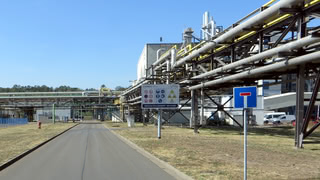
Some of the cleanest Polyamide and Nylon precursor Factories are shutting down
The production of a chemical called Caprolactam results in significant N₂O emissions, a potent greenhouse gas. Most EU producers largely avoid these emissions. Some have made investments in drastic emission reduction in recent years. But many of these low-emitting factories are now shutting down.
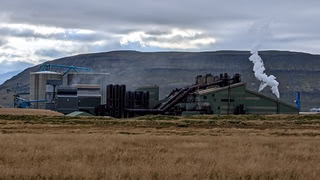
Errors and Inconsistencies in European Emission Data
Factories that suddenly have emissions a thousand times lower than before, unexplained data gaps, and inconsistent CO₂ emissions from different data sources are some of the issues one finds when having a closer look at the European Union's emission databases.
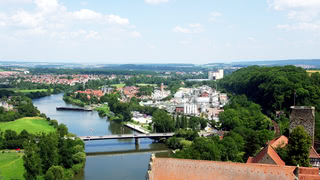
Super-Emitter of the most Damaging Greenhouse Gas found in Germany
Through atmospheric measurements, scientists have identified a chemical factory operated by Solvay in Southern Germany as the source of massive amounts of Sulfur Hexafluoride (SF₆) emissions. Being 25,000 times as bad as CO₂, SF₆ is the most potent known greenhouse gas.

Why is it needlessly difficult to access UNFCCC Emission Data?
Due to international climate agreements, countries report annual data about their greenhouse gas emissions to the UNFCCC. However, downloading and using that data is a lot more difficult than it should be.
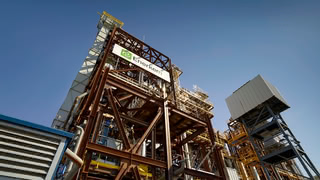
Is Enerkem's Waste Gasification technology a Failure or a promising Climate Solution?
Repsol wants to build a waste gasification plant to make circular and biogenic Methanol in Spain. The Ecoplanta project will use a technology that previously failed to deliver on its promises in Canada.

This Hydrogen has no Color
Peregrine Hydrogen has an unusual idea for making clean Hydrogen, one that it says fits into existing industrial processes. One of the world's largest Phosphate mining companies is interested.
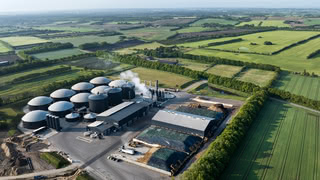
You want CCS, but cheaper and less controversial? Try Biomethane
Carbon capture technology is often associated with ideas of capturing CO₂ from power plants or industrial facilities like cement plants. Biomethane upgraders provide CO₂ that is easy to capture and less controversial than most other potential sources for CCS and also CCU. Yet, they are rarely part of the discussion.
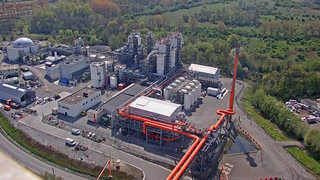
Uncertain Future for ArcelorMittal's Smart Carbon Projects in Belgium
Steel giant ArcelorMittal has been reluctant to invest into Hydrogen-based steelmaking. But its alternatives it calls Smart Carbon are not doing great either. Its flagship Steelanol project in Belgium could be shut down soon, and the closely related Torero project faces technical challenges.
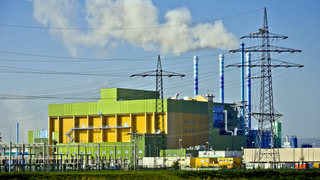
Just Stop Burning Trash
Waste-to-energy plants are a massive source of carbon dioxide emissions. Yet, it is not obvious what the best solution for high-emitting incinerators would be. Should incinerators be equiped with carbon capture? How much can recycling rates be improved, and what role should chemical recycling play? And could landfills be a carbon storage solution?
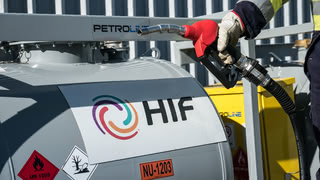
What's up with the Production of E-Fuels in Chile?
In 2022, Siemens Energy, Porsche, and HIF inaugurated a pilot plant for the production of E-Methanol and E-Gasoline in southern Chile. The Haru Oni plant was intended to be just the beginning — with plans for large-scale production just a few years later. However, it does not look like that will ever happen.
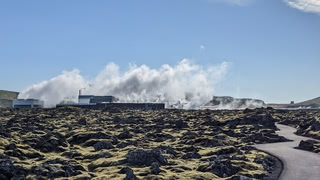
Iceland's E-Fuels Controversy
Hydrogen and E-Fuels companies want to utilize Iceland's abundant renewable energy sources. But Iceland's largest energy company Landsvirkjun does not want to sell electricity to them. E-Fuels producers hope that European authorities will intervene, the EFTA Surveillane Authority investigates.

Why power a short-distance Ferry with Liquefied Hydrogen?
The passenger ferry MF Hydra in Norway is the world's first ship running on Liquefied Hydrogen (LH₂). The Hydrogen fuel is delivered by truck from Germany - and nobody wants to say where it comes from.
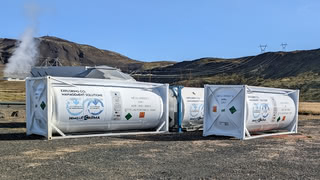
Shipping Carbon Emissions from Switzerland to Iceland
Is it feasible to transport carbon dioxide over long distances for geological storage? Researchers from Switzerland think so — and have already started shipping CO₂ to Iceland in a pilot project.

Why the owners of a Shipping Company are investing in Fossil-Free Plastics
A. P. Møller Holding, the largest shareholder of Maersk, has launched a green plastics startup called Vioneo. It wants to build a Methanol-to-Olefins plant in Belgium - the first such factory in Europe.
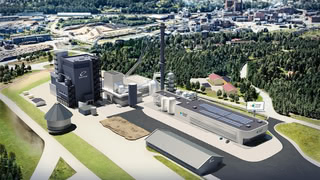
The Canceled Swedish E-Methanol Factory may Rise from the Ashes
Last year, wind energy company Ørsted stopped plans for the green shipping fuel and E-Methanol plant FlagshipONE in Sweden. Yet, in an unexpected twist, Liquid Wind, the company that initially developed FlagshipONE, wants to build an even larger E-Methanol factory at the same location.
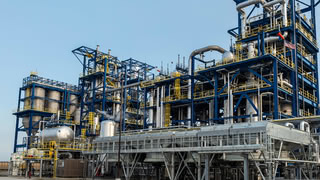
The Problem with Turquoise Hydrogen made from Fossil Gas
A process to split methane into its components, hydrogen and carbon, is advertised as a way to make hydrogen from fossil gas without emissions. Yet, claims that methane pyrolysis is free of CO₂ emissions or more efficient than water electrolysis are highly misleading.

Reducing Glass Industry Emissions with Sodium Hydroxide
Glass production generates process emissions that cannot be avoided by switching to renewable energy. A circular carbon process to make soda ash, an essential raw material for glass production, could help tackle those emissions, but it comes with some caveats.
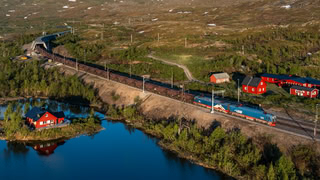
Is Sweden's Green Steel Transformation still on Track?
The Swedish state mining company LKAB is delaying some of its more ambitious plans for a green steel transformation. However, other green steel projects in the Nordic country are proceeding.
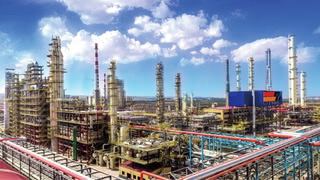
From Coal enabler to the Minimal Green Methanol Economy
While it does not get as much attention as hydrogen, green methanol could play a crucial role in a climate-neutral industry. Ideas for a Methanol Economy have been around for decades, but the implementation challenges should not be underestimated.

Why no one wanted to buy the Green Shipping Fuel
Many shipping companies see e-methanol - made from hydrogen and carbon dioxide - as the most promising future clean fuel. But it appears they do not want to buy it: energy company Ørsted canceled plans for an e-methanol production facility due to a lack of offtake agreements. A weakened EU regulation has likely contributed to the difficulty of selling green shipping fuels.

Misleading Logarithmic Scales and the Disregard for Energy Efficiency
A chart linking low energy consumption with poverty is widely shared on social media. The graphic uses a misleading visualization, and if we look at the data more objectively, it tells a very different story - one that highlights the potential of energy efficiency.
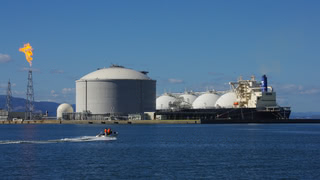
Is there a place for E-Methane in a Climate-Neutral Future?
Methane made from green hydrogen and carbon dioxide can directly replace fossil gas. The company TES wants to produce such e-methane, but critics say: that only works due to stacked subsidies and could delay important transformation steps.
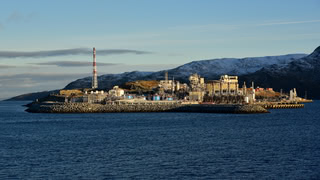
Is Carbon Capture and Storage more expensive than we thought?
A controversy about the Hammerfest LNG plant on the Norwegian island Melkøya raises questions about the affordability of post-combustion carbon capture and storage. Equinor wants to electrify its operations - and said CCS would be too expensive.
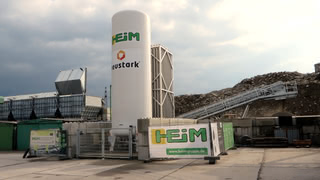
Carbon Removal with Demolished Concrete
At a recycling facility on the outskirts of Berlin, carbon emissions from biomethane production are stored in construction waste. The Swiss company Neustark hopes that its technology will play a part in a future carbon removal industry.
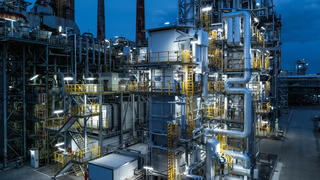
BASF starts the World's First Electric Cracker Furnace
Electrifying steam cracking can reduce emissions in the chemical industry, but it does not change the use of fossil input materials. It is only a first step towards climate-neutral chemicals.
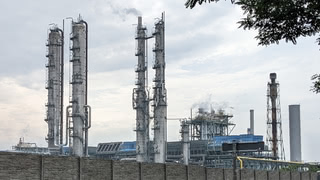
What we do not know about Planet-Warming Hydrogen Emissions
In the atmosphere, hydrogen acts as an indirect greenhouse gas. Recent studies show that its warming potential is higher than previously thought, causing concerns about a much wider use of hydrogen in the future. Yet, very little is known about hydrogen leakage rates.
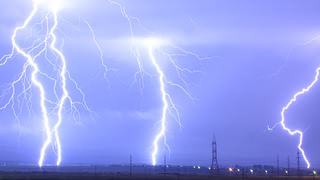
E-Fuels and E-Chemicals may need multiple times the World's current Electricity Production
Technologies turning water and carbon dioxide into energy-rich chemicals could replace fossil fuels where electrification is not feasible. However, Carbon Capture and Utilization (CCU) would require enormous amounts of clean electricity.

Unburning CO₂: The Problem with Fossil Carbon Capture and Utilization
Technologies that turn carbon dioxide into fuels or chemical resources can play a role in a climate-neutral future. But they come with challenges and usually only delay emissions. This can lead to overestimating their potential.
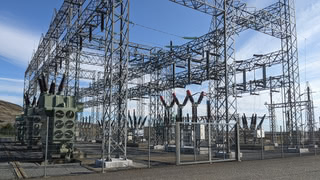
The Trouble with European Green Electricity Certificates
Electricity companies from Iceland and Norway sell green electricity certificates (Guarantees of Origin) while their customers advertise using the same renewable energy. After a temporary ban on certificate exports from Iceland, the responsible Association of Issuing Bodies (AIB) has permanently lifted that ban and does not plan any further action.

Insecure Password allowed Administrative Access to Electric Vehicle Chargers
Electric vehicle chargers of the brand Hypercharger were shipped with an insecure default password and allowed access to a configuration interface to anyone over the Internet. The vendor reacted quickly, but incidents like this show potential IT security risks of electrification infrastructure.
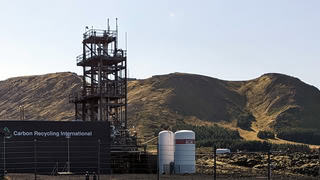
Should we burn Methanol when the Wind does not blow?
Electricity grids with high shares of wind and solar energy will require energy storage over long periods of time. A new study suggests that green methanol might be more attractive than hydrogen in some cases.
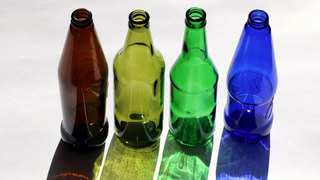
Making Glass without Fossil Gas
Today, glass production uses primarily fossil fuels and comes with substantial carbon emissions. Electrification could change that, but it probably cannot be scaled enough to power large production facilities completely. And even a glass industry powered by renewable energy would have remaining CO₂ emissions.
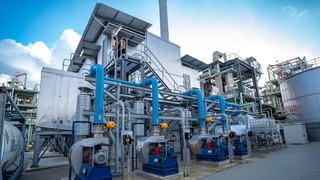
The avoidable Super-Greenhouse-Gas from Fertilizer, Nylon, and Vitamin B3 production
The production of some nitrogen-based chemicals can cause substantial nitrous oxide emissions (N₂O), a potent greenhouse gas. Technology to stop these emissions is cheap and readily available, but it is not always applied.

How to make Plastics without Fossil Fuels
Decarbonizing plastics and other petrochemical processes requires more than clean energy; it requires different input materials. A technology used in China's coal-based chemical industry could be an interesting building block for the future of plastics.

EU Innovation Fund: Oxyfuel CCS, E-Methanol, and more
The EU Innovation Fund is one of the most important funding instruments for large-scale and industrial decarbonization projects. We look at the latest funding round: Multiple oxyfuel CCS projects for cement production, lots of e-methanol – and not much electrification.
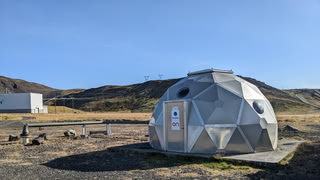
Can CCS Escape from its Fossil Fuel Industry Roots?
Carbon capture and storage could help stop carbon dioxide emissions that are otherwise hard to avoid. But the technology is surrounded by controversies and is closely tied to the fossil fuel industry.
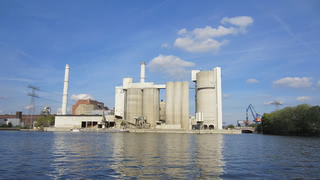
Cement's future could be a combination of Carbon Capture and Electrification
Cement is an industry where capturing carbon emissions may be necessary. A combination with process heat electrification could be better than CCS alone.
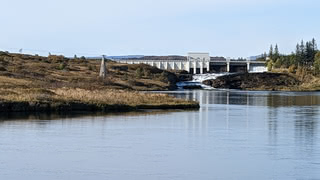
Double Counting and other problems with Green Electricity Certificates
Double counting of green energy had recently led to a suspension of renewable electricity certificates from Iceland. Now they can be exported again – even though the problems are not solved. But that is not the only problem with renewable electricity certificates.
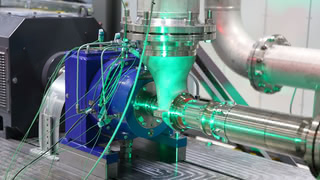
Hotter Heat Pumps could help Electrify Industrial Heat
Most energy in industry is used to provide heat. The most efficient way to decarbonize heat is to use heat pumps powered by green electricity. Which leads to the question: What temperatures can they achieve?
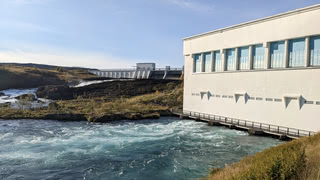
How Iceland sold the same Green Electricity twice
European renewable energy certificate led to double counting of the same electricity from Iceland. Certificate exports have now been suspended. But the problem is not restricted to Iceland.
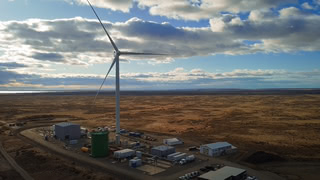
Hype and E-Fuels: The Haru Oni pilot plant
Making fuel just from wind, water, and air – that's the promise of the Haru Oni project in Chile. But claims by the companies operating the plant contain a lot of hype.
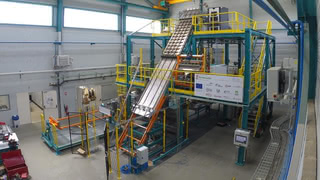
Making Steel with Electricity
The Siderwin research project tested a new method of steelmaking that uses direct electrolysis of iron oxide in a pilot plant in France. The steelmaker ArcelorMittal now announced that it wants to commercialize the technology.
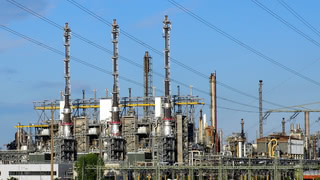
Do Ammonia Crackers make sense?
Several companies have announced plans to build ammonia crackers to use ammonia as a hydrogen carrier. However, do they make sense as long as existing ammonia facilities run on fossil-based hydrogen?

Gas Stoves and Gas Grids
Cooking with gas represents only a tiny fraction of overall gas use. Some say it does not matter much for the climate, but is that true?
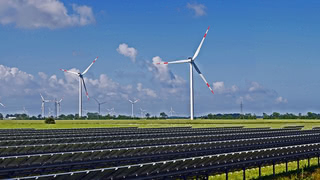
The Future Dominance of Solar and Wind Energy
There is surprisingly strong agreement in future energy scenarios about the dominance of solar and wind energy.
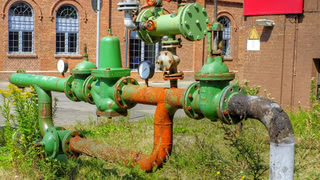
Hydrogen Heating and the Future of the Gas Grid
Most experts don't see a future for hydrogen boilers in buildings, but industry groups lobby for them. This raises an important question: What future is there for gas grids?
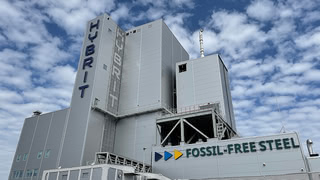
The path to Green Steel could be Hydrogen
Several steelmakers are investing in technologies that could clean up one of the biggest contributors to climate change.
You can subscribe to the Industry Decarbonization Newsletter
via E-Mail or
RSS or follow on
Mastodon,
Bluesky,
or LinkedIn.
If you enjoy my work, you can supporting it via Patreon.
Sometimes, I publish online lectures about these topics on YouTube.
Written by Hanno Böck.